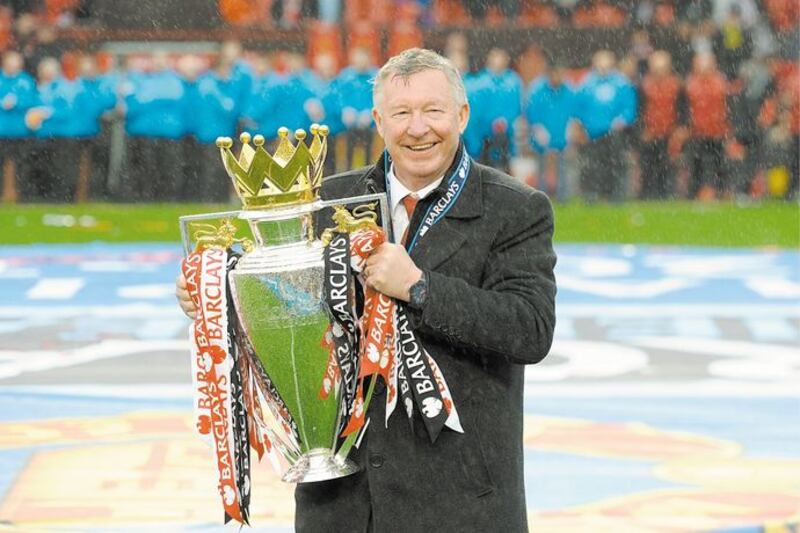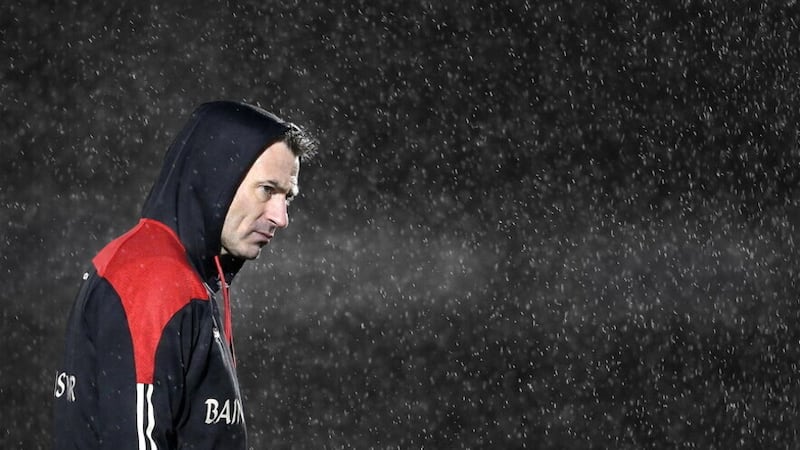AS AN avid Liverpool supporter, I get carried away like all true Liverpool supporters do at times.
I have come through at least 26 years now of false dawns. The big development in Liverpool in recent years was the development of the new stand and getting a manager of Jürgen Klopp’s profile to buy into the project.
You will see in time that Liverpool will eventually win a league title. I am confident of that and, for the Premier League, this will be a brilliant outcome for all concerned. Why? Manchester United need a strong Liverpool and vice versa.
The domination of clubs like Chelsea and Arsenal because of London’s climate and culture has drawn players away from the north of England in the past. A strong Manchester United and Liverpool helps negate this.
Manchester City may pack out a stadium for a meeting with the remainder of the ‘big six’ in England, but you could swing quite a large cat in the stand for a midweek game against lesser opposition.
Manchester United won their first title for 26 years in 1992. That championship was the hardest won after such a long drought. They just kept coming after that. A bit like Dublin’s win in 2011 – their first since 1995 which was staggering for a county of their history and size.
The barren years previously endured would have surely been a cause of huge disappointment. Not only was this the case for the supporters and the players, but the GAA lost out commercially in this intermittent period.
The revenues were huge during the nineties and the All-Irelands shared around counties in Ulster, Leinster and Munster, with a couple of finals for Mayo thrown in for good measure, meant the financial rewards for each province and county was pretty well divided throughout the country.
Given that this Dublin team are dominating now and look set to continue to dominate for the foreseeable future, you would like to think this is a cycle which must surely encounter some hiccups along the way.
While the barren spell an intercounty player from Dublin might endure going forward would be a year or two without a Celtic Cross, we are living in a time when the possibility of ‘buying’ your way to an All-Ireland is something which is very much achievable.
Mayo’s costs are increasing, as are those of the majority of counties in Connacht. Moreover, the longer this continues without an AllIreland title to show for it only makes the pressure on them more palpable.
Kerry continue to spend heavily and their history and passion for Gaelic games does not wane as it has done and continues to do in other counties of Ireland. It remains the case that playing for Kerry is the very pinnacle of a footballer’s achievements in the Kingdom.
Paddy Kelly recently retired from Cork and, having beaten us to an All-Ireland title in 2010, I would have considered Paddy to be one of the best half-forwards around in the last 10 years.
He was a very loyal servant and it was interesting to hear that his parting shot, aimed at the county board, suggested a lack of regard for the players and what it takes now to compete at the highest level.
He describes how it was the players themselves who organised the gym sessions and the painting and decorating of a warehouse close to the training field and it was the players who organised kitting the place out with weights and gym equipment.
I thought to myself: ‘Cork? Seriously? If that’s the case, it shows in their results the last few seasons – a county as big as theirs steeped in history and their inter-county players were having to go to these lengths in an attempt to keep up with the standards of the Kerrys and Dublins.

This is a county who are almost guaranteed an All-Ireland quarter-final place, given the nature of Munster and the draw. It arguably smacks of contempt for the players and management, supporters and the history of Cork.
Now, I would never preach that you have to spend a million pounds in order to win an All-Ireland title. I wouldn’t even suggest half of that would be needed. However, in order to compete, it definitely costs a lot of money.
In an ideal world, it would be brilliant to go to training, do three laps of the field, stretch and have an ‘inhouse’ game. You could afford to go to club training, play club matches, still train and play with the county. No GAA calendar issues here.
However, this is not the ideal world. It was Gaelic football 30 years ago. Taking the periods of domination from Manchester United’s teams of the sixties and Liverpool of the seventies and eighties, the common denominator was the fact that the best players transferred to both clubs.
Yet in addition, the players shared a culture of socialising and winning in equal measure. Alex Ferguson changed this. He ushered in an era of total dictatorial leadership. Fergie grew up in a shipyard community of Glasgow with the Labour unions holding a vice-like grip on their workers and their communities.
He took the same attitude into his sporting life and ran the club in the same way as Paul McGrath, David Beckham and Jaap Stam would testify. He made United successful and was as much responsible as the owners for the brand Manchester United has become today.
While he may have shaken his head in disgust at Paul Pogba’s performance against Liverpool last Sunday, the commercial and corporate value of this player’s involvement in one of biggest games in the world last Sunday makes it more about the brand than the player.
This is the complete opposite of what Ferguson envisaged when he started working in the dockyards of Glasgow or in 1986 as manager of Manchester United. In Gaelic football, Jim McGuinness and Pat Gilroy contributed as much too, changing the intercounty game forever.
It is the reason why St Brigid’s in Dublin are having their club players sign contracts. The problem, though, is Dublin GAA, like any other successful brand, is built on huge levels of income and subsequent investment in their players and their youth.
The issue in the GAA is that there is a serious lack of competition at brand level and at playing level. While the top echelon of English soccer’s Premier League originally started with two or three teams, the fact that six teams are now competing is brilliant for the league.
GAA just doesn’t have the same equivalent base for funding or scalability. Certainly not while the Association continues to direct so much finance towards one county. The GAA will never have anything resembling the Premier League.
Nevertheless, we are in danger of becoming a ‘top one’ Championship. In addition, clubs are getting carried away thinking they are a county team or competing for a Premier League.
The moral of the story? The blame lies with the man who built the first brand in England – yes, it’s all Alex Ferguson’s fault.








